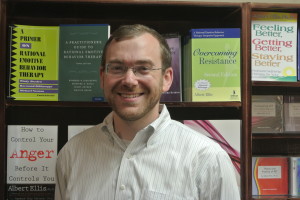by Mark Schiffman, M.S.
A few weeks ago, psychologist Adam Grant wrote an op-ed in the New York Times about the possible benefits of being a procrastinator. He reviewed some research by a student of his that indicates that at times procrastination could lead to more creativity. Some of the most famously creative people are known to leave things until the last possible moment, including the late Steve Jobs, and one of my favorite screenwriters, Aaron Sorkin. While perhaps there are some people who benefit from procrastination, for many others, procrastination can engender anxiety and at times unfavorable outcomes like missing deadlines. For those interested in working on procrastination, Dr. Eric Sudler will be giving a workshop on the topic on March, 22nd here at AEI.
While procrastination can be a blessing or a curse depending on the context, the same is true for its opposite, pre-crastination. The term pre-crastination was coined by Rosenbaum, Gong, and Potts (2014) when they discovered that the participants in their study tended to hasten the completion of a subgoal, even if that hastening caused them to do extra physical effort. Grant elaborated on the concept and described a pre-crastinator as someone who needs to start a task and finish it immediately. Grant, a self-proclaimed pre-crastinator, finished his dissertation two years before it was actually due. What can be wrong with that?
Firstly, for a pre-crastinator, not working toward an impending goal creates a sense of emptiness and angst. Depending on the presence of irrational beliefs, being a pre- crastinator can easily lend itself to unhealthy negative emotions. Secondly, being a pre- crastinator and getting things done quickly could inhibit quality and creativity. Grant admitted that his senior thesis in college was too conventional because he just needed to get it done.
Are you a pre-crastinator or a procrastinator? Does it depend on the context? Does it help/hurt you to be a pre/pro-crastinator? Can you identify any irrational beliefs associated with your pre/pro-crastination? Would you change to being the other if possible?

